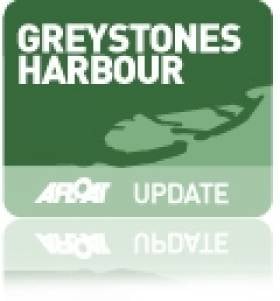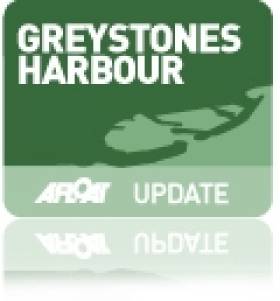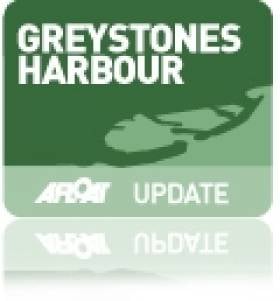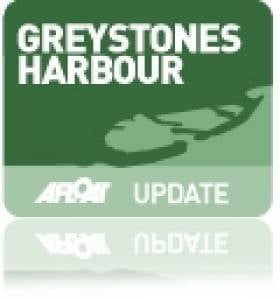Displaying items by tag: Derek Mitchell
#greystonesharbour – Following the installation of life saving rings on the North Pier at Greystones harbour in County Wicklow, the walk around the marina and to the North Beach has opened to the public.
Cllrs. Derek Mitchell and Grainne Mcloughlin walked this when it opened. 'This adds an attractive walk around the marina to the town's facilities and has been long awaited.
The walk is over a kilometre long and the pier is wide and attractive' said Cllr Derek Mitchell. 'As there is no electricity on the pier for safety lighting it will be closed before dark. During the summer it is open from 9 am to 8 pm'.
Council Bond Ensures Greystones Harbour will Open - Councillor
Wicklow Councillor Derek Mitchell has moved to reassure frustrated boaters and townspeople alike that the partially completed €300 million Greystones Harbour and Marina will be completed. In a letter to the Irish Times this morning the councillor acknowledges that the delays are 'frustrating' but advises the council holds a €5 million bond to ensure the project will be completed.
A recent survey of prospective boat owners found 80% of berths required in the proposed 200 berth marina would be under eight mertres. Mitchell admitted earlier this year more interest from boat owners was required to get the marina underway.
The council bond is not exercisable until 2014.
A slipway at the community harbour is operational but the public square and five free clubhouses for different boating activities from angling to sailing are still to be provided. Last November builders Sispar held an open day to show off the impressive marine works.
A spokesperson for development consortium Sispar previously advised the decision on funding the next phase rests with that National Assets Management Agency (Nama).
Greystones Harbour Open Day Gives Chance to See Impressive Marine Works
This is a chance, says local councillor Derek Mitchell, to see what has been achieved behind the hoardings in the last two years. "All marine works will be finished in 2010 and it is impressive to see what has been achieved. Currently much of the earth stored on top of D'Arcys field is being moved to beside the new harbour and it is quite mucky which limits the area which the public can access. However it will be a good chance to see behind the hoardings" Mitchell told Afloat.ie.
The next stage will start in January and finish in December 2011 after which most hoardings will come down. This stage consists of the 4 storey Health Centre, public square and free clubhouses for the Sea Scouts, Rowers, Divers, Sailors and Anglers.
Greystones Harbour Facilities to be Complete by End 2011
Tuesday nights Greystones Town Council meeting was informed by Greystones harbour developer Sispar that the major work on the seawalls would be complete at the end of November 2010.
Following this, construction of the Health Centre, public square and Community buildings for the Sea Scouts, Rowers, Anglers, Divers and Sailors will start in January and should be complete in December 2011.
The hoardings which have blocked the view of the harbour and proposed marina will be taken down as these works are completed in 2011.
Local councillor Derek Mitchell (and a Ruffian keelboat champion) told Afloat.ie: "I welcome this as Greystones had been trying to get the harbour rebuilt for over a hundred years and this will create the best Community Harbour in Ireland".
Councillor Mitchell adds "The developer has applied to change some of the housing and add 34 houses to the North. Wicklow County Council is to vote on this in December. These houses may not be built yet, depending on the housing market, but access will be provided across the site to the North Beach and the new swimming beach there"
"The meeting was also told that the loan would be going in to NAMA, as all loans will, however this is not expected to make any difference to the project", he added.
Councillors asked for more Community tours so that people could see what has been achieved.

































































